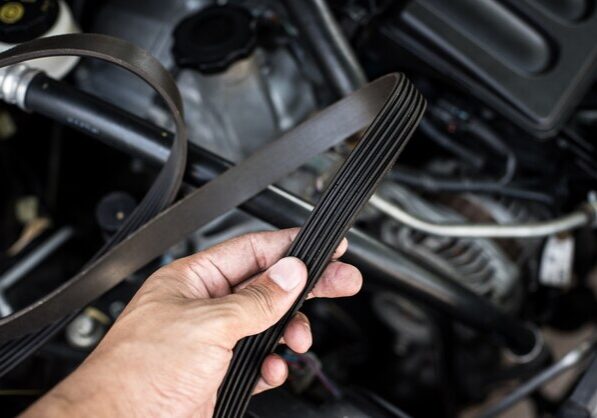Timing Belt Automotive Repair
Your vehicle’s timing belt is a critical component in an efficiently operating engine. The timing belt connects the crankshaft to the camshaft. The crankshaft controls the engine’s pistons, while the camshaft opens and closes the valves. The timing belt helps control the timing of these movements to ensure the engine runs correctly.
A broken timing belt can cause severe engine damage, so it is important to keep it in good condition. Preventative maintenance, which includes replacing a timing belt before it nears the end of its life expectancy, can help reduce the impacts of a worn belt to your vehicle (and your wallet).
How do you know if your timing belt is going bad?
If you experience any of these issues, it’s possible that your timing belt is worn out:
- Engine won’t turn over
- Ticking noise coming from engine
- Oil leaking from the engine
- Engine misfires
- Engine revs between 2,000 RPMs and 4,000 RPMs
- Timing belt has missing teeth or visible wear


What happens if my timing belt breaks?
When a timing belt breaks, your engine will simply stop running. The impact of a broken timing belt does depend on an engine’s type. In the best case, your engine may have some broken valves and damaged pistons. In a worst-case scenario, the valves and rods can push through the engine cover or even your oil pan, ruining your engine.
Local Automotive Repair Experts
Our local automotive repair experts can help you with any questions you have regarding symptoms of a bad timing belt, and will assist you in troubleshooting and repairing it and any other vehicle components. Please visit one of our locations for any timing belt issues you may have or to schedule an appointment with one of our automotive repair experts.
